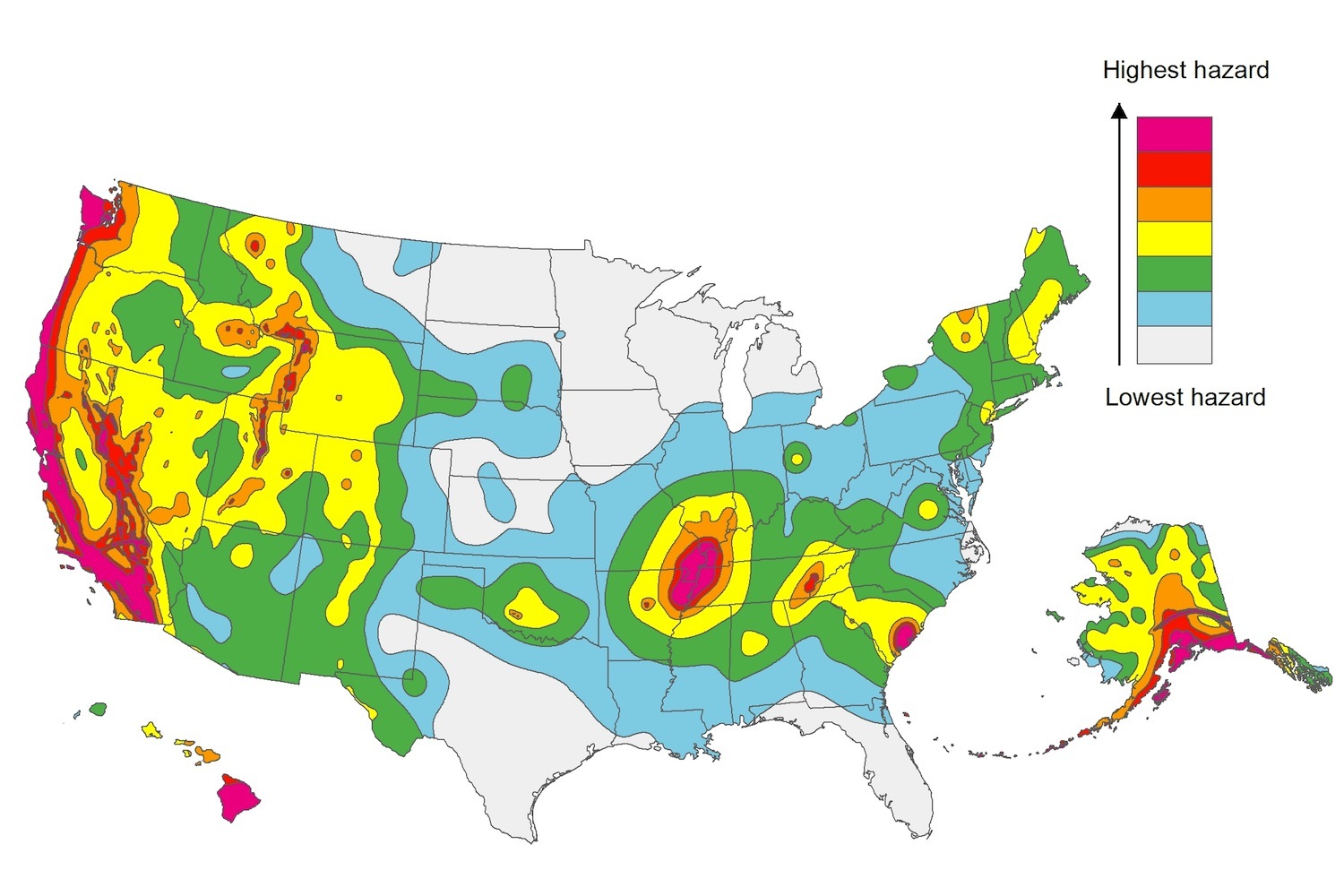The U.S. Geological Service recently released an update of U.S. National Seismic Hazard Maps that reflect the latest analysis of where future earthquakes will occur, how frequently they may occur, and their strength.
While all states have some potential for earthquakes, 42 of the 50 states have a reasonable chance of experiencing damaging ground shaking from an earthquake in the next 50 years. Sixteen states have a relatively high likelihood of experiencing damaging ground shaking. These states have historically experienced earthquakes with a magnitude 6 or greater. The hazard is especially high along the west coast, intermountain west, and in several active regions elsewhere such as near New Madrid, Mo., and near Charleston, S.C.
The eastern U.S. has the potential for larger and more damaging earthquakes than considered in previous maps and assessments. This finding is due to what scientists learned following the magnitude 5.8 earthquakes that struck Virginia in 2011. It was among the largest earthquakes to occur along the east coast in the last century, and indicated that even larger events in the region are possible.
The maps are used in risk analyses calculated using factors such as population levels, building exposure, and building construction practices. These assessments are used for establishing building codes, in the analysis of seismic risk for key structures, and in determining insurance rates. They can also aid emergency preparedness plans, and private property decisions such as re-evaluating one’s real estate and making it more resilient.
(http://www.usgs.gov/blogs/features/usgs_top_story/new-insight-on-the-nations-earthquake-hazards/)
Related Stories
Building Owners | Dec 2, 2019
What building owners and AEC teams need to know about New York’s Climate Mobilization Act
On April 18, 2019, the New York City Council passed the Climate Mobilization Act, a suite of laws aimed to meet the city’s commitment to achieving carbon neutrality by 2050.
Codes and Standards | Nov 26, 2019
Updated ASHRAE standards focused on ventilation design, air quality in residential applications
Standard 62.1 and 62.2 updates provide new tables of ventilation rates per unit area.
Codes and Standards | Nov 25, 2019
Real estate professionals say coworking is not a flash in the pan
More than 60% say coworking space is in their portfolios.
Codes and Standards | Nov 22, 2019
Utility’s proposal threatens California’s rooftop solar mandate
Would allow customers to use solar farms instead of installing their own PVs.
Codes and Standards | Nov 21, 2019
Number of LEED commercial building projects surpasses 100,000
More than 2.6 million sf of space being certified each day.
Codes and Standards | Nov 19, 2019
Most U.S. voters support licensing standards for architects
NCARB survey shows strong support for architecture as a licensed profession.
Codes and Standards | Nov 18, 2019
Cambridge, Mass., teams up with utility on energy retrofit program
Buildings large than 25,000 sf targeted in initiative to further carbon neutrality goal.
Codes and Standards | Nov 14, 2019
Resistance to Toronto’s ‘smart city’ reveals pitfalls of such ambitious projects
Concerns over data privacy, governance, feasibility prompt criticism.
Codes and Standards | Nov 13, 2019
Heat pumps, strategic energy management could be next major focuses for efficiency
After lighting, efficiency experts look to new opportunities to boost energy efficiency.
Codes and Standards | Nov 12, 2019
National Infrastructure Performance Council to address ‘national security crisis’
Coalition wants to double annual level of infrastructure investment.

















